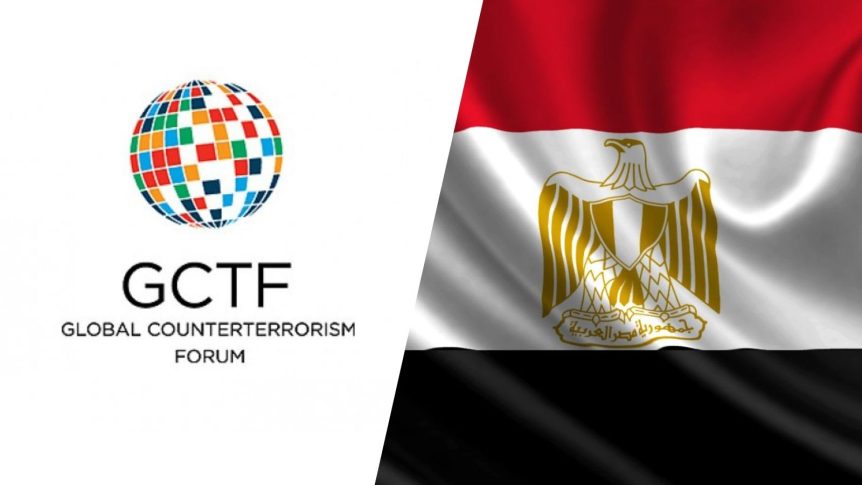Dear Josep Borrell, EU High Representative for Foreign Affairs and Security Policy / Vice-President of the European Commission,
As civil society organizations that work to ensure that respect for human rights is central to national and international counterterrorism policies, we are writing to urge the European Union in its role as co-chair, with Egypt, of the Global Counter Terrorism Forum (GCTF) to take steps to recenter human rights within its work on global counter-terrorism policies.
The government of President Abdel Fattah al-Sisi has sought to manipulate counterterrorism as a tool to solidify its grip on power since ousting the government of late former president Mohamed Morsi in 2013. When the EU’s bid to co-chair the GCTF with Egypt was announced in early 2022, civil society organizations issued a statement expressing their concern. The statement noted that “Egypt has seen an escalating, systematic crackdown on the rule of law and human rights, as well as the rise of specific targeting of human rights defenders (HRDs) through a sustained campaign of arbitrary arrests and detention, and politicized criminal proceedings against HRDs and opposition politicians for baseless ‘terrorism’ charges.”
This crackdown continues, as does Egypt’s abuse of international counterterrorism norms and institutions to deflect well-merited criticism of this unlawful and abhorrent practice. We remain concerned that Egypt will seek to use its influential position within the GCTF to evade criticism for its extensively documented human rights violations and to advance its efforts to weaken human rights protections in counterterrorism policies at the multilateral level.
The Coordinating Committee of the GCTF, under co-chairship of the EU and Egypt, will meet in Cairo on May 4. Prior to that meeting, we seek assurances from the EU that it will uphold its commitments to promoting human rights in its foreign policy. In that regard, we urge you and other senior EU officials, including those traveling to Cairo, to:
- Raise concerns with your Egyptian counterparts on the misuse of counterterrorism legislation to crack down on independent civil society.
- Urge the Egyptian authorities to release all those held solely for their peaceful exercise of their human rights, to end their attacks on independent civil society, and to instead work with NGOs to establish a legal framework that enables them to carry out their work without fear of reprisals and upholds the rights to freedom of association.
- While in Cairo, meet with representatives of independent human rights organizations whose work has been obstructed by Egypt’s restrictions imposed on the internationally protected rights to freedom of expression, peaceful assembly and association, often in the name of countering terrorism;
Associating with a government that has instrumentalized counterterrorism to clamp down on human rights generally, and human rights defenders specifically, undermines the EU’s stated commitment to the promotion of human rights. This commitment extends to counterterrorism efforts, as clearly stated in the Council Conclusions on EU External Action on Preventing and Countering Terrorism and Violent Extremism of June 2020. Absent steps including those we outline above, this association with Egypt also greatly risks eroding the EU’s reputation as an international actor that claims to promote and protect human rights.
Beyond the May 4 meeting, we urge you to set clear, measurable objectives for improvements in the human rights practices of all GCTF member states in the counterterrorism sphere. If GCTF member states, including Egypt, continue to fall short of international human rights standards in their counterterrorism laws and practices, then the GCTF, and the EU as its co-chair, should speak out against clear, serious and sustained violations. The GCTF and the EU should also show that there are consequences for human rights violations, for example by refraining from supporting the appointment of serial rights abusers to prestigious positions in multilateral organizations.
Furthermore, the GCTF in the past has been a notoriously opaque organization. To better ensure human rights accountability, the GCTF should be more transparent and more inclusive. Independent civil society should have access to GCTF meetings and the opportunity to safely raise concerns about the negative impact of the counterterrorism measures of its members, including through regular, open consultations.
We look forward to continuing dialogue with you and your colleagues throughout the EU’s co-chairship of the GCTF.
Sincerely,
Undersigning organizations
- Cairo Institute for Human Rights Studies
- Human Rights Watch
- MENA Rights Group
- World Organization Against Torture (OMCT)
- International Federation for Human Rights
- Saferworld
- CIVICUS
- Amnesty International
Share this Post

